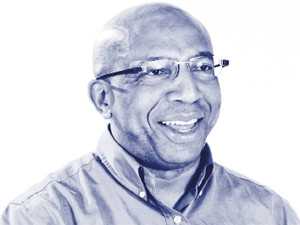
Telkom plans to become an open access operator. CEO Sipho Maseko confirmed the telco will open copper access at 200 exchanges on a trial basis. This will effectively pave the way for a more open access approach for the operator, depending on the outcome of the trial.
Speaking at the Southern Africa Telecommunication Networks and Applications Conference (SATNAC) in Hermanus, Western Cape, he said Telkom is committed to the establishment of an open access regime for the entire industry to realise South Africa's objectives.
Maseko noted Telkom is committed to democratising broadband access.
"We have set ourselves the objective of contributing to transforming the South African economy. South Africa is a developing democracy. We want to accelerate this development."
Maseko also outlined plans to roll-out fibre to a million homes by 2018. He confirmed that as of the end of August, Telkom had connected 38 000 homes with fibre as well as added 1 317 LTE sites. The telco's strategy for fibre-to-the-home will see it deployed to 70 000 homes by December and 150 000 by March 2016, with the ultimate goal to provide access for one million homes by March 2016.
While Telkom's fibre rollout for large metropolitan areas will continue, the company is working with government to provide broadband to under-serviced areas.
Maseko said he knows the digital divide is alive and well in South Africa. "We must recognise that the issue of access lies at the heart of the divide. You either have access or you don't. It's as simple as that. To cross the digital divide, you must provide universal access."
He also encouraged other mobile operators to join Telkom to bridge the digital divide. "If we are to overcome the access deficit, and in light of the mobile revolution and the benefits this has engendered, South Africa needs to see wholesale access to the mobile local loop and active sharing of the radio access network. This is an imperative and an important precursor for democratising broadband."
Maseko called on South Africa's telecoms regulator to consider its spectrum strategy to allow for fairer distribution of spectrum. "It is absolutely essential that more spectrum is made available, particularly sub-1GHz spectrum for rural coverage and good indoor coverage in urban areas."
Maseko noted this is particularly true for Telkom, "the only mobile operator with no sub-1GHz spectrum available to it."
He said it is imperative the regulator adopts technical and regulatory conditions that facilitate the harmonised use of spectrum, to ensure the maximum socio-economic benefits are derived from spectrum.
In order to make broadband access meaningful, South Africa should also reconsider import duties which limit broader access to affordable smart devices costing less than R1 000.
"My request and call to government is to remove the barriers that hamper the imports of these devices. Twenty-five-percent of the cost on every device is made up of import duties. We must find a way to reduce and remove those duties in order to be able to bring as many of those devices as we possibly can in order to accelerate the point around access.
"It's good to have good infrastructure and good content but transformation will only happen if we can put a meaningful smart device in the hands of consumers across the country."
Maseko believes South Africa is at an inflection point. "History will judge us one day on how we - government, operators, academia, the regulators and original equipment manufacturers - have used our collective resources to bring about sustainable change and economic development by bringing broadband to our people."
Share